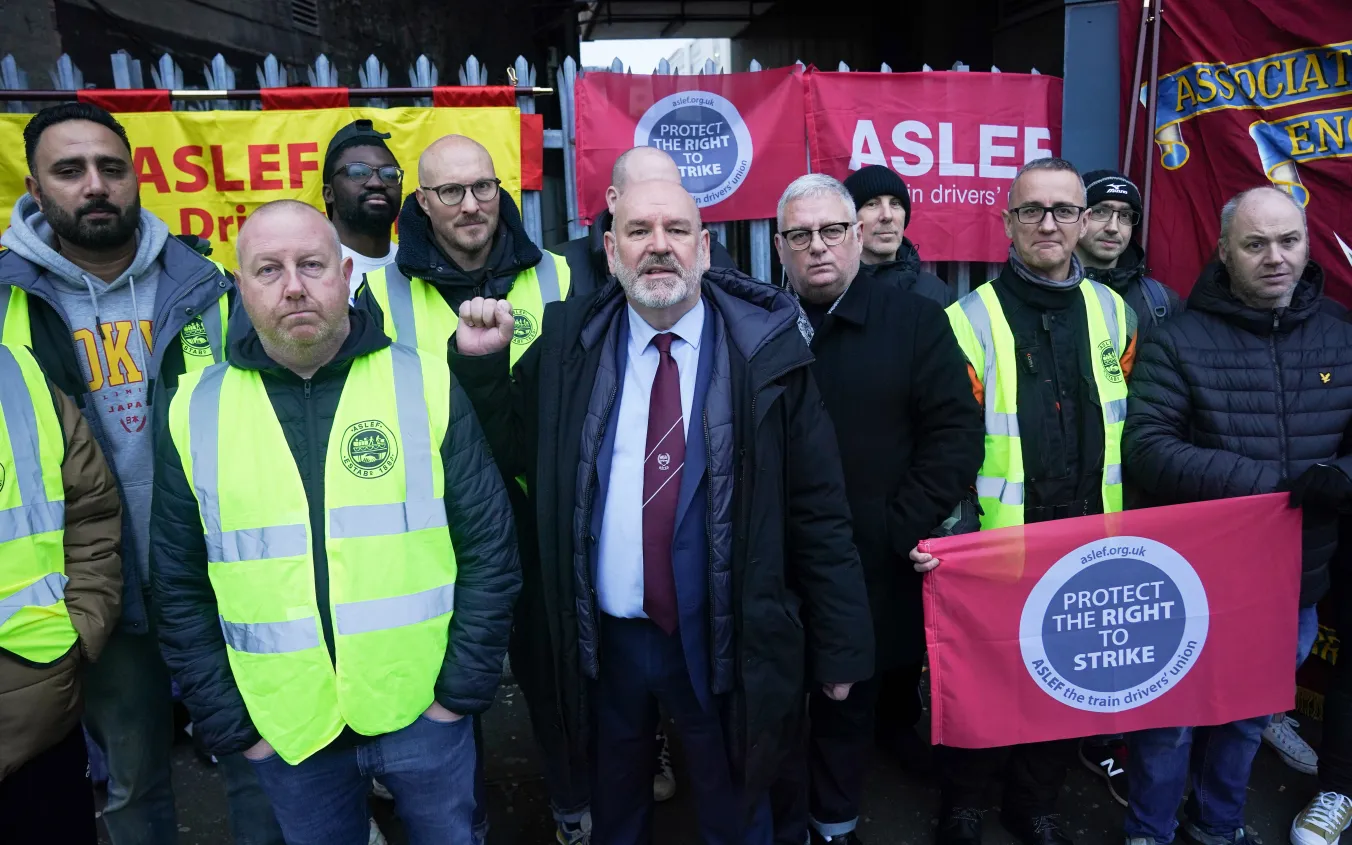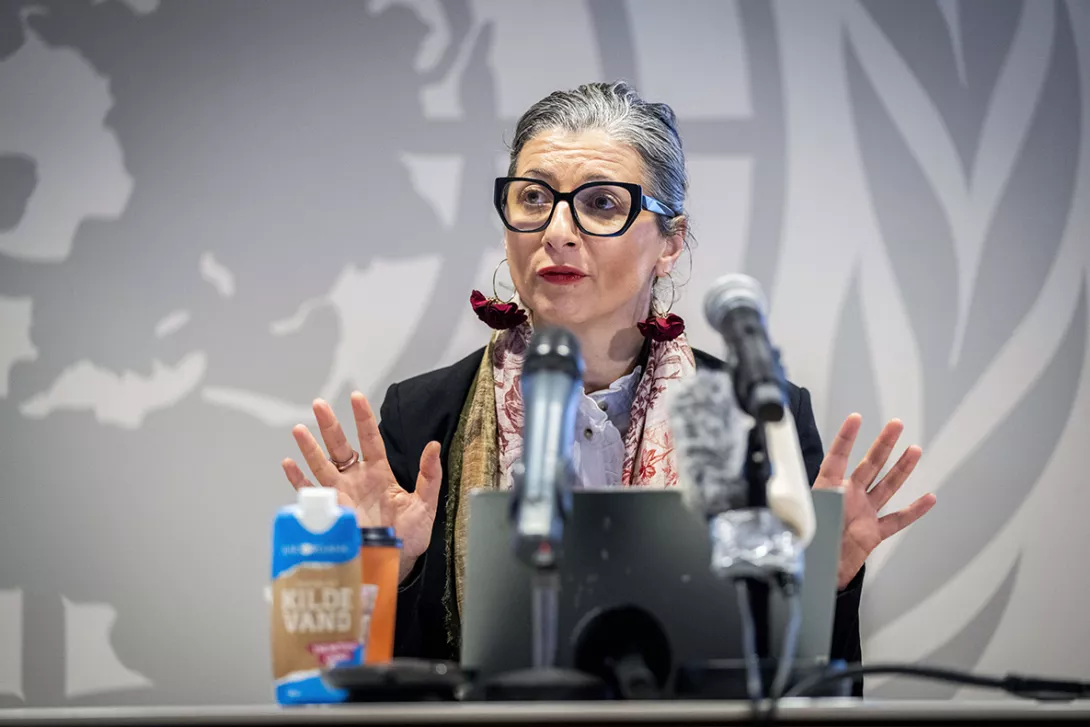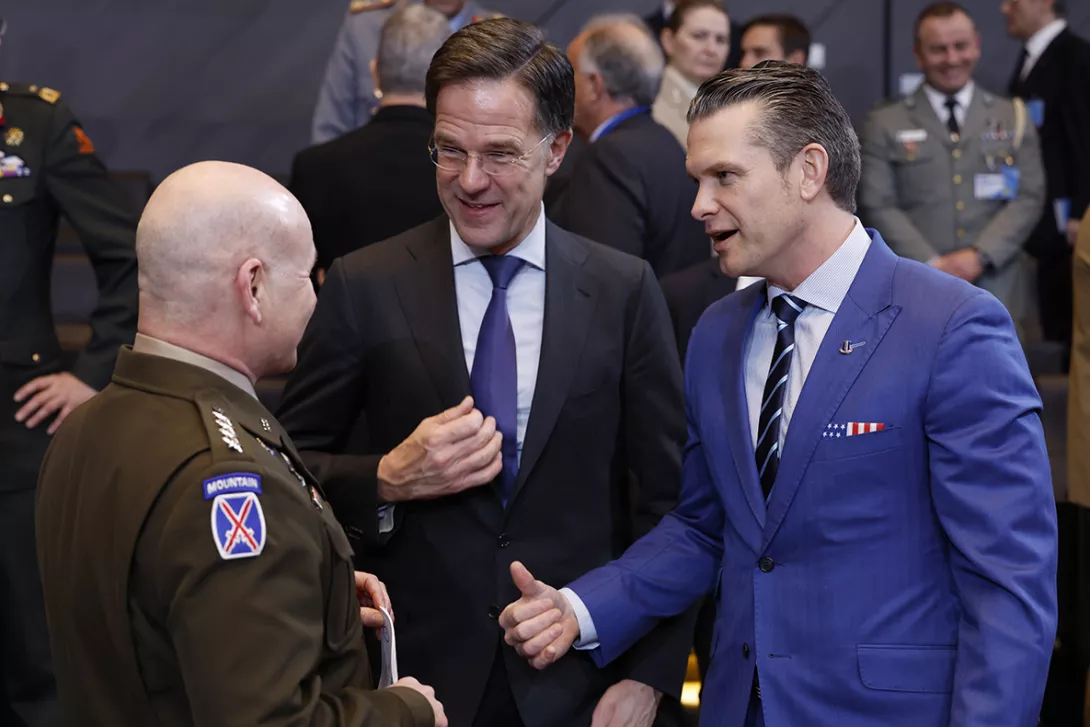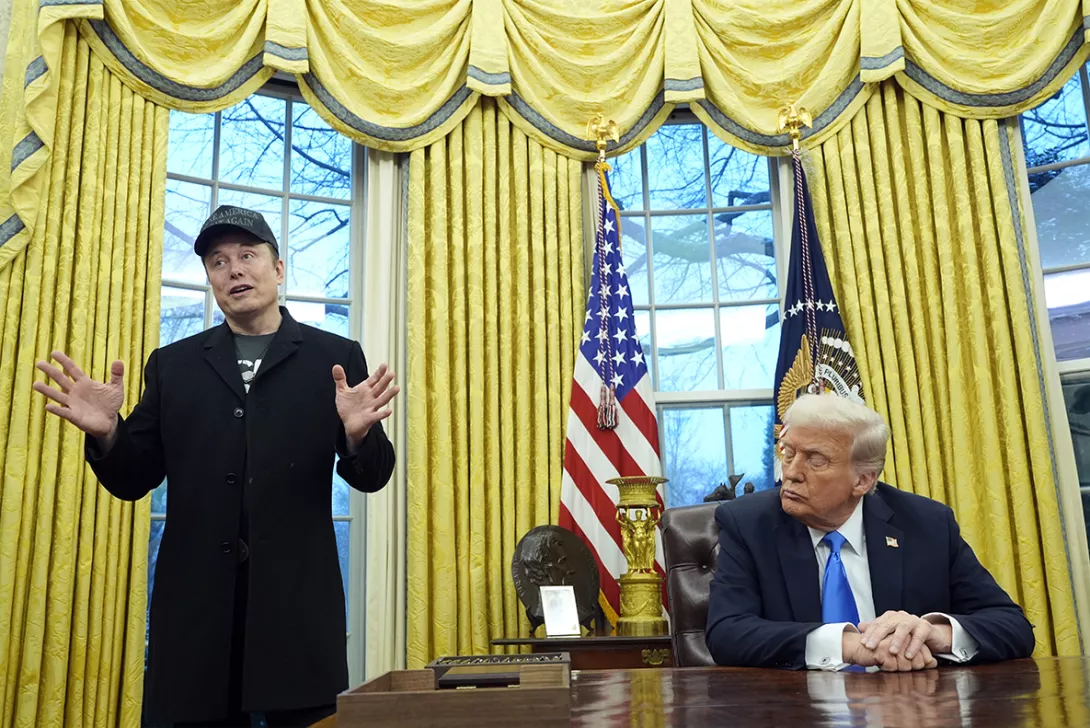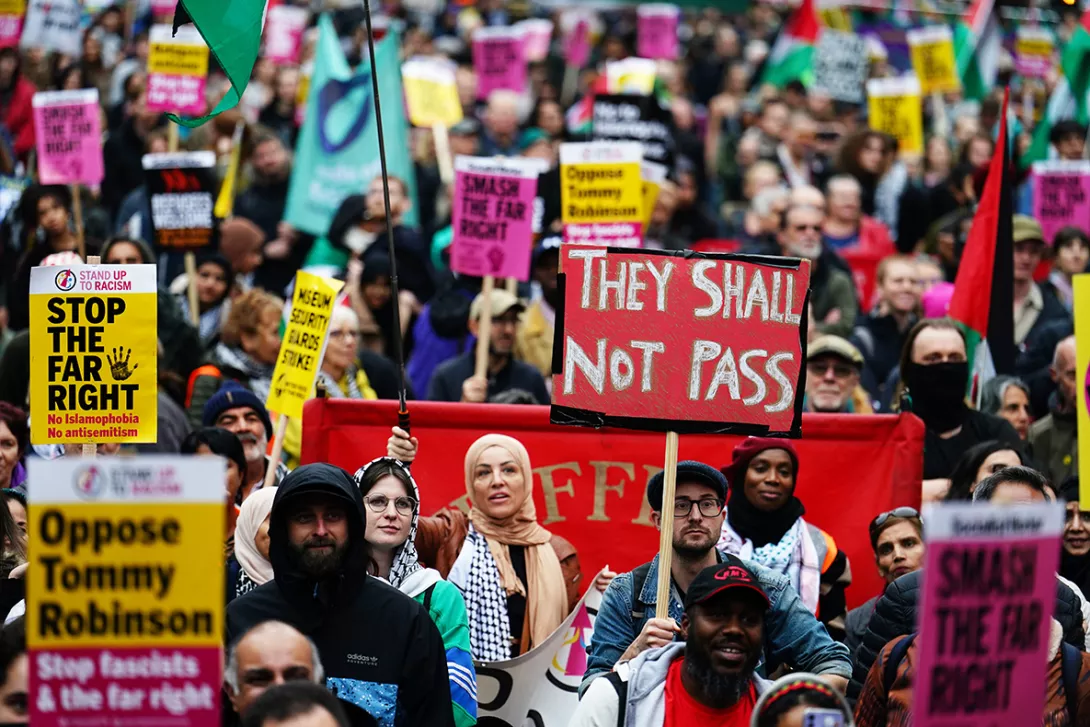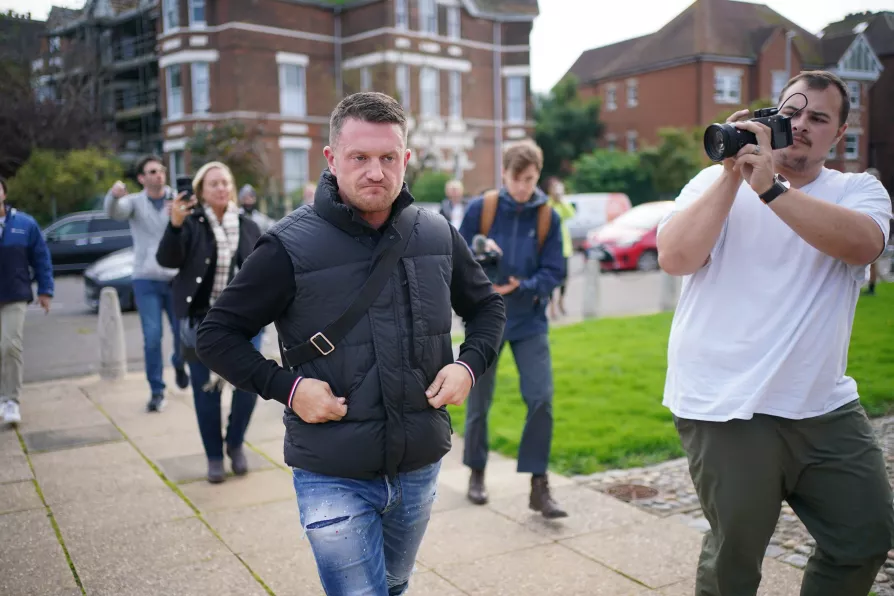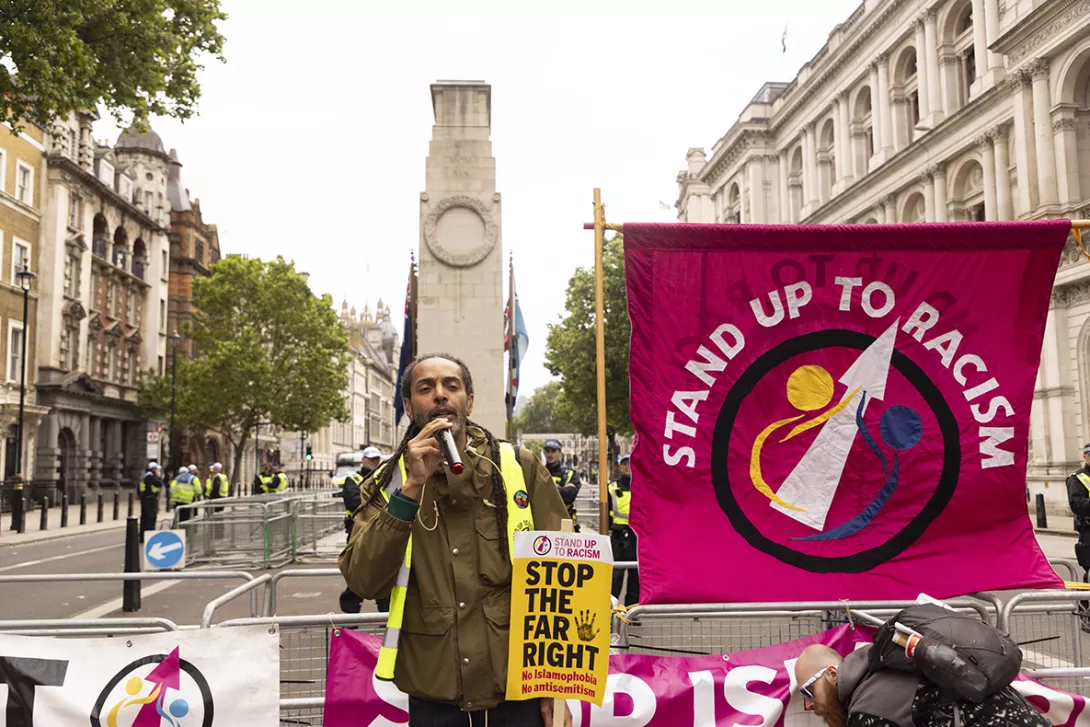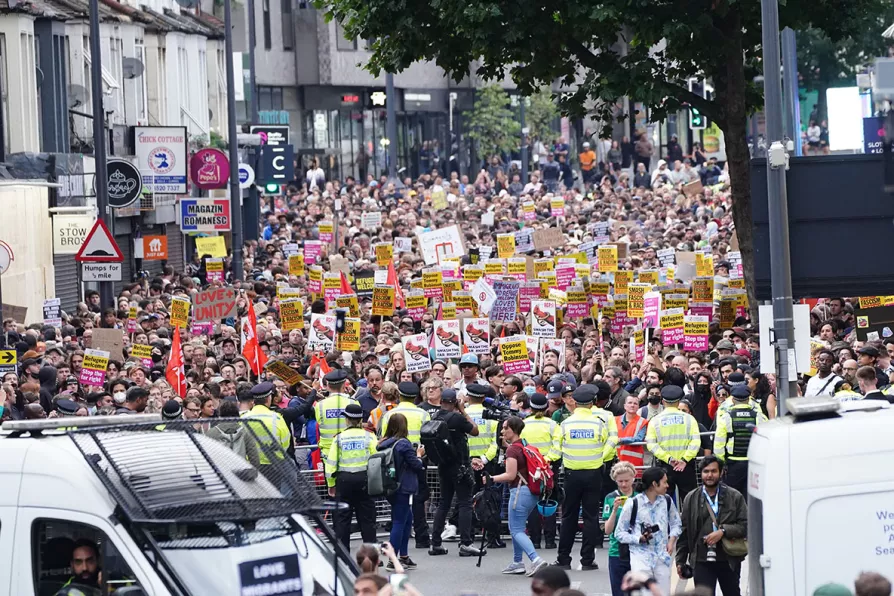
PEOPLE power has changed the narrative. The threat of fascist riots is not over, but they look far more isolated than they did before Wednesday night.
Even those who are not usually friends to street demonstrations have saluted the spirit that brought hundreds of thousands out in Bristol, Newcastle, Walthamstow and many other places.
Metropolitan Police Commissioner Mark Rowley acknowledges the role the counter-protests played in preventing far-right violence. “Frankly the show of unity from communities together defeated the challenges that we’ve seen… the fears of extreme right disorder were abated.”
Even more surprising was approbation on the front pages of right-wing papers. The Times, the Mail, the Express are associated with hatred of the left: the latter two, particularly, with migrant-bashing. Yet all ran glowing tributes to anti-racist popular rallies on their front pages.
There is hypocrisy here. But that only underlines the significance of a movement that forces them to take this line. They have read the mood of the country and realised it is not with the racists.
This explodes the logic of anti-socialist fanatic Lord Walney, whose bid to call out “Russia and Iran” for whipping up disorder was an attempt to associate the arson, assault and vandalism of the fascists with peaceful marches in solidarity with Palestine.
It will be harder for authoritarians in government to use the riots as an excuse for a sweeping crackdown on public demonstrations now that the country’s biggest police force and most of its major newspapers are on record praising street demos mobilised by the activist left, most prominently Stand Up to Racism.
The value of counter-demonstrations has been vindicated. Communities threatened by the fascists know how many are with them: and the far right will think twice before entering these spaces. As National Education Union general secretary Daniel Kebede said at one of the biggest mobilisations, “they won’t be passing in Walthamstow.”
There is much to build on. The next round of anti-racist demonstrations can be bigger, as more gain confidence that we have the numbers. The media and police response puts us in a good place to demand more political leaders take a stand alongside people on the streets, broadening the anti-fascist front and making it harder still for the state to crack down on the left.
It matters that we have an organised activist core of the anti-racist movement. These were popular community mobilisations, but the role of experienced activists within them was key.
The Stop the War Coalition has been seriously attacked within the left for its anti-imperialist campaigning in recent years, but demonstrated how necessary such a grounded and battle-tested peace campaign is when with the Palestine Solidarity Campaign, CND and others it stepped up to organise the mass Palestine demos.
Just so has Stand Up to Racism shown its importance this week, though unions will be looking to raise the game on direct anti-racist work too.
Palestine flags at the demos show the crossover between anti-racism and anti-imperialism, and the organisational and personal connections between activists and campaigns will be vital to ensure an anti-racist, anti-imperialist left is not divided. Those ready to defend communities here are rightly appalled at our government’s complicity in murder and mayhem in the Middle East.
And as with Palestine, we are seeing evidence that the institutional suppression of the left in the Labour Party does not mean the huge, vibrant left of the Corbyn years has gone away.
There is a mass constituency in Britain for hope, tolerance and real change. It lacks coherence, but can mobilise fast when an urgent issue arises.
The labour movement should look to unite all forces into an ongoing campaign for a political and economic alternative to austerity and war: longer term, that is how we will eliminate the conditions for fascism’s growth.
